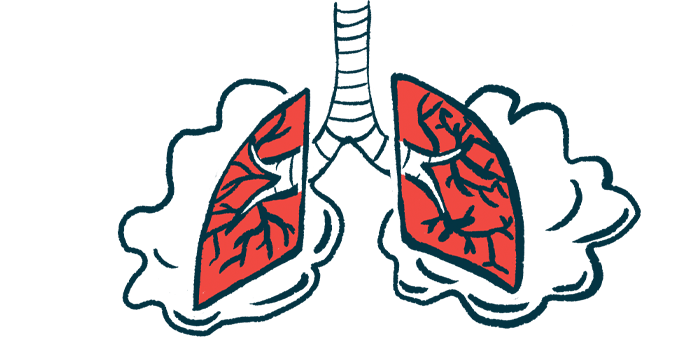Trikafta may help ease type of lung inflammation common to asthma
Type 2 inflammatory response seen in lungs of CF patients

Treatment with Trikafta (ivacaftor/tezacaftor/elexacaftor) may help to ease a particular type of lung inflammation found in people with cystic fibrosis (CF), called a type 2 inflammatory response, that’s often associated with asthma and allergies.
As asthma is reported to affect 30.8% of CF patients, a research team wondered whether a highly effective CFTR modulator therapy like Trikafta could “impact a previously established T2 inflammatory state.”
Their study, “The impact of CFTR modulator triple therapy on type 2 inflammatory response in patients with cystic fibrosis,” was published in Allergy, Asthma & Clinical Immunology.
Trikafta never tested against a type 2 inflammatory response
CF is caused by mutations in CFTR gene, and characterized by the production of sticky mucus that promotes inflammation in organs like the lungs.
Trikafta is a triple-combination CFTR modulator that helps to boost the functionality of the CFTR protein in people with eligible CF-causing mutations. While data show that Trikafta works to improve lung function in these patients, its effects on the type 2 inflammatory response are not known.
Scientists at the University of Virginia analyzed data from 85 adults with CF seen at the University of Virginia Adult Cystic Fibrosis Clinic between 2018 and 2021.
To assess the type 2 inflammatory response, the researchers studied two markers of this type of inflammation: levels of eosinophils, a type of immune cell, and levels of immunoglobulin E (IgE), a type of antibody. These markers were assessed at one year before starting on Trikafta, then again after a year on the therapy.
The team constructed statistical models to assess the change in these markers over time, while accounting for other factors, including lung function tests, age, sex, type of mutation, use of inhaled steroids, and history of several types of CF-relevant infections.
“This analysis serves as an important starting point to continue the evaluation of CFTR modulator therapy from an immunologic perspective,” the scientists wrote.
Trikafta affected an antibody’s levels, but not key immune cells called eosinophils
Results showed that levels of IgE decreased significantly, by a mean of 20.1%, after patients started on Trikafta.
The reduction in IgE was statistically significant in patients with a history of fungal infection, but not in those without such a history. The decrease also was not significant in patients with a history of infection with a type of bacteria known as methicillin-susceptible Staphylococcus aureus (MSSA). But in other subgroups — including patients with a history of methicillin-resistant Staphylococcus aureus (MRSA) infection — the reduction was statistically significant.
Levels of eosinophils, however, did not significantly change after starting on Trikafta in any of the analyzed groups, which surprised the researchers.
“Eosinophilia is the quintessential defining feature of T2 inflammation,” they wrote. “As such the absence of a change in [eosinophil counts] signifies that initiation of CFTR modulator therapy had no impact on these central defining components of T2 inflammation.”
Eosinophil levels, however, generally were lower in men than women across all time points analyzed, the researchers noted.
“This study demonstrates that there is a statistically significant percent reduction in mean total IgE but no change in [eosinophil counts] following [Trikafta] initiation,” the team concluded.
Based on these findings, the researchers speculated that Trikafta might reduce the amount of molecules that stimulate immune cells to make antibodies like IgE, likely by helping to clear mucus out of the airways — but, the therapy doesn’t directly change the activity of eosinophils.
They highlighted that this analysis was limited by its retrospective nature and small size, emphasizing a need for further research into how Trikafta treatment may affect inflammatory processes in CF.








